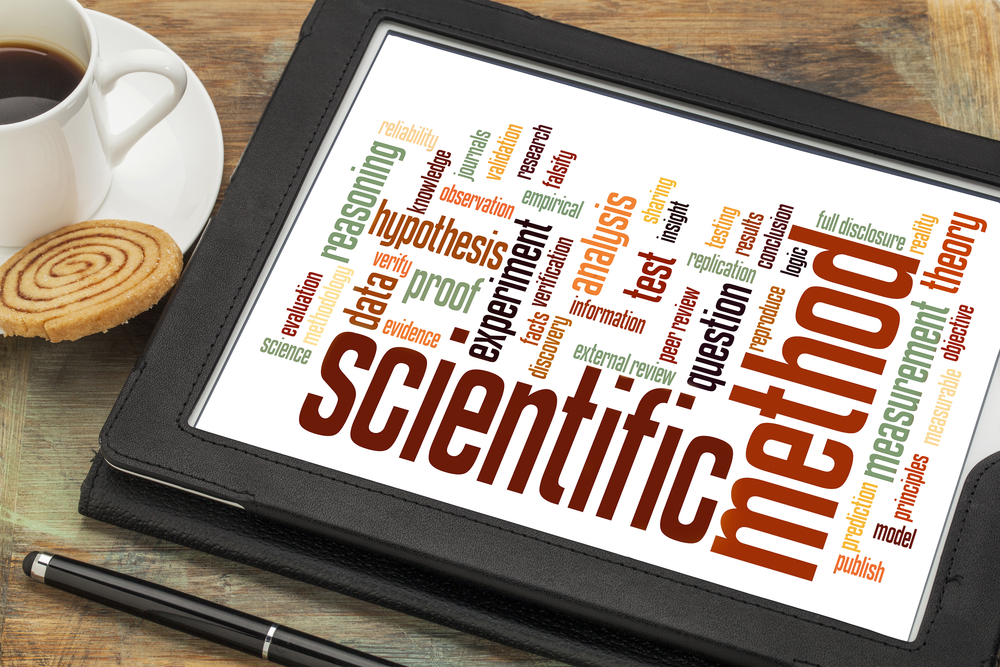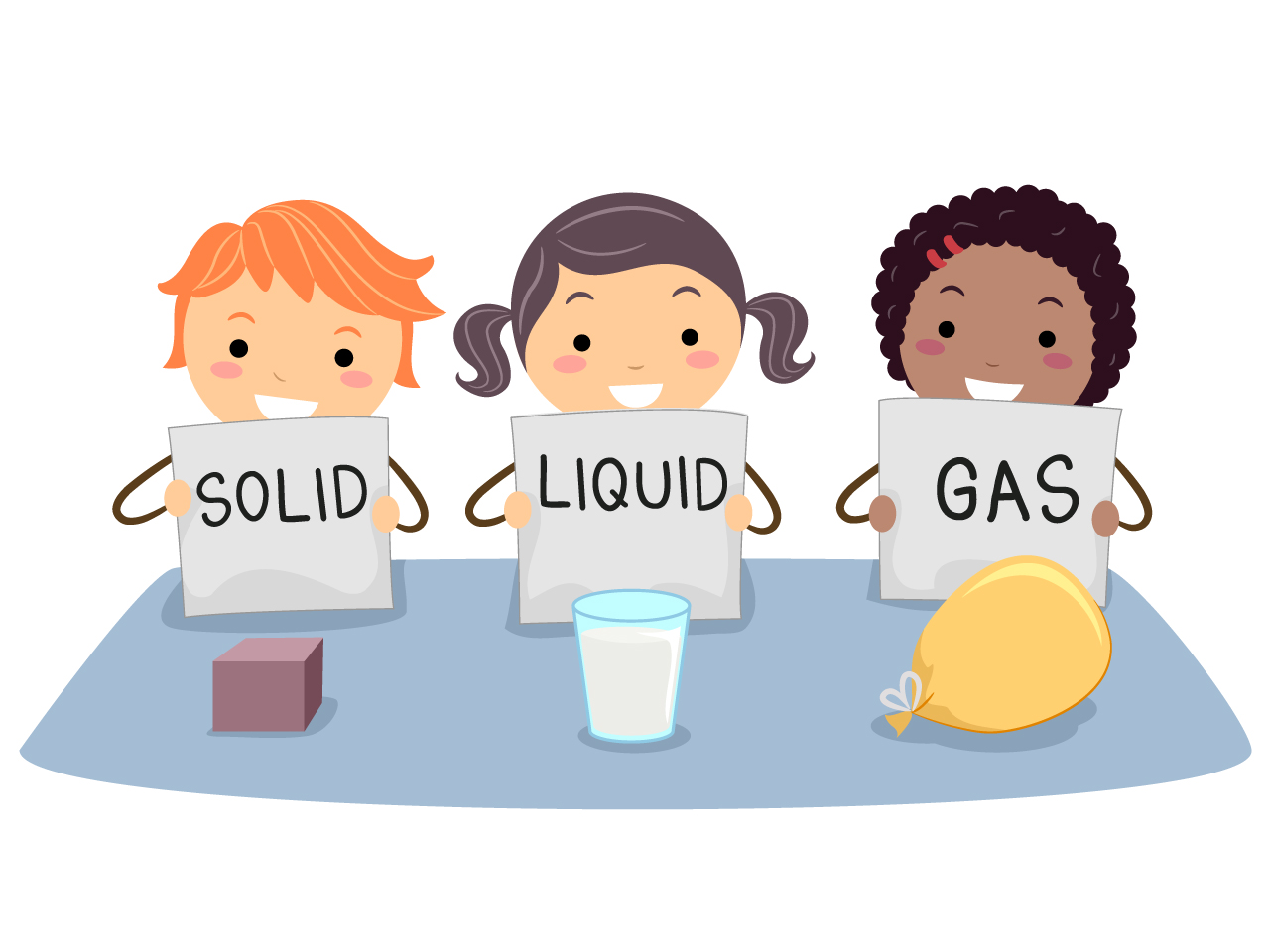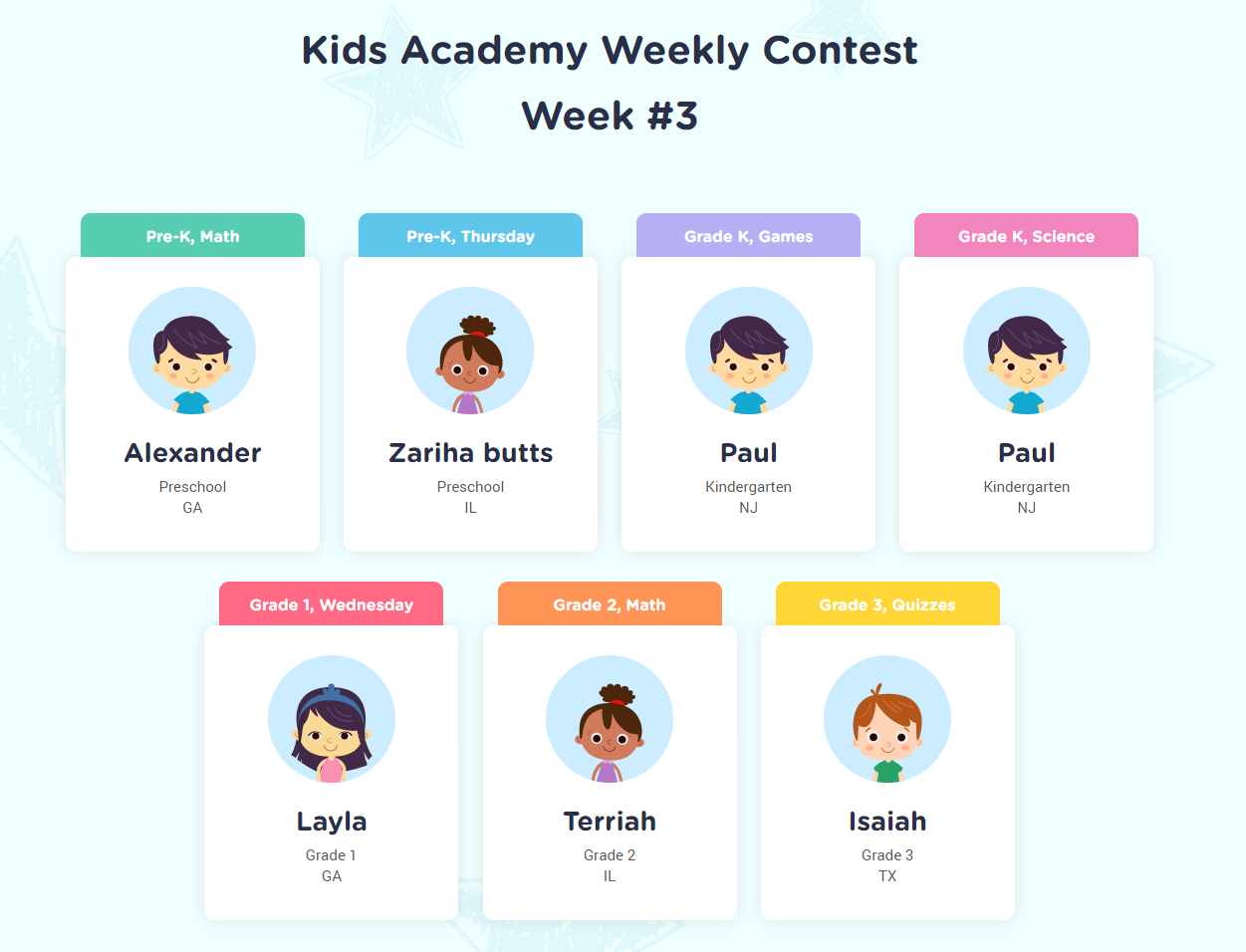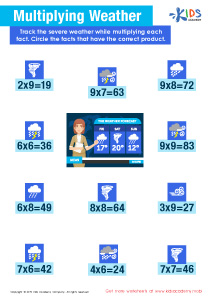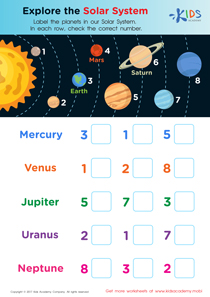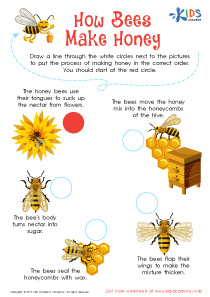Learning about ecosystems Grade 3 Science Worksheets
3 filtered results
-
From - To
Explore our engaging Grade 3 Science Worksheets focused on learning about ecosystems! Designed to spark curiosity and deepen understanding, these worksheets cover essential concepts like food chains, habitats, and the roles of organisms within their environments. Our resources encourage hands-on learning, critical thinking, and creativity, making it easy for students to grasp complex ideas. With a variety of activities including coloring, matching, and fill-in-the-blank exercises, students will enjoy exploring the intricate connections that sustain life on Earth. Perfect for classroom use or homeschool settings, these worksheets provide a fun and educational experience that supports young learners in grasping the importance of ecosystems!


Pollinator Positions Worksheet
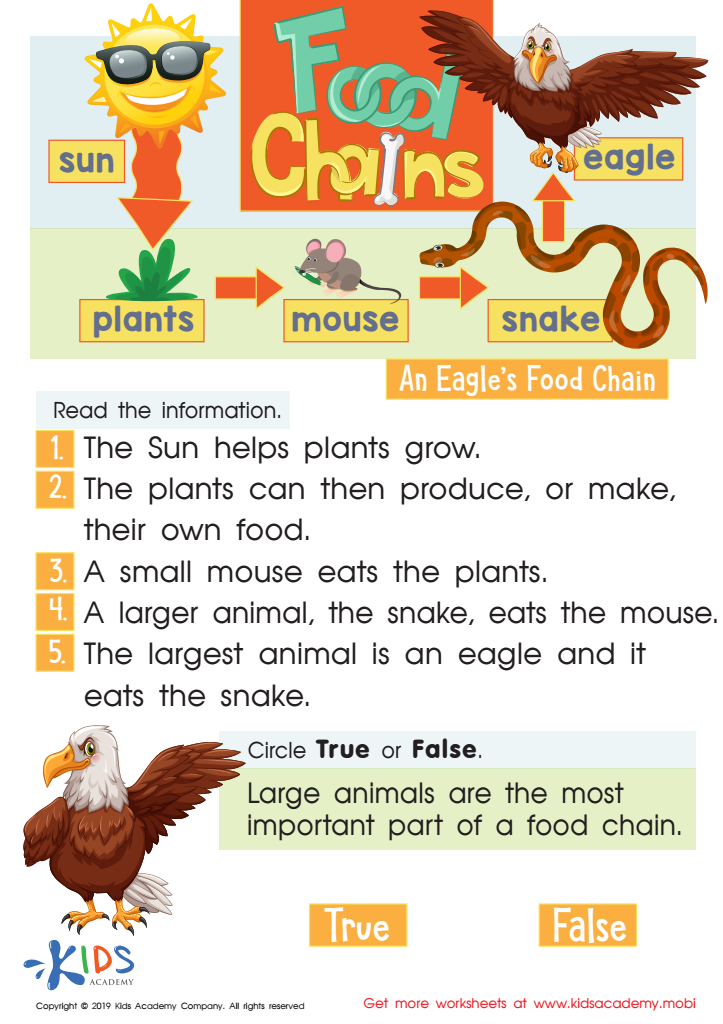

Food Chains Worksheet
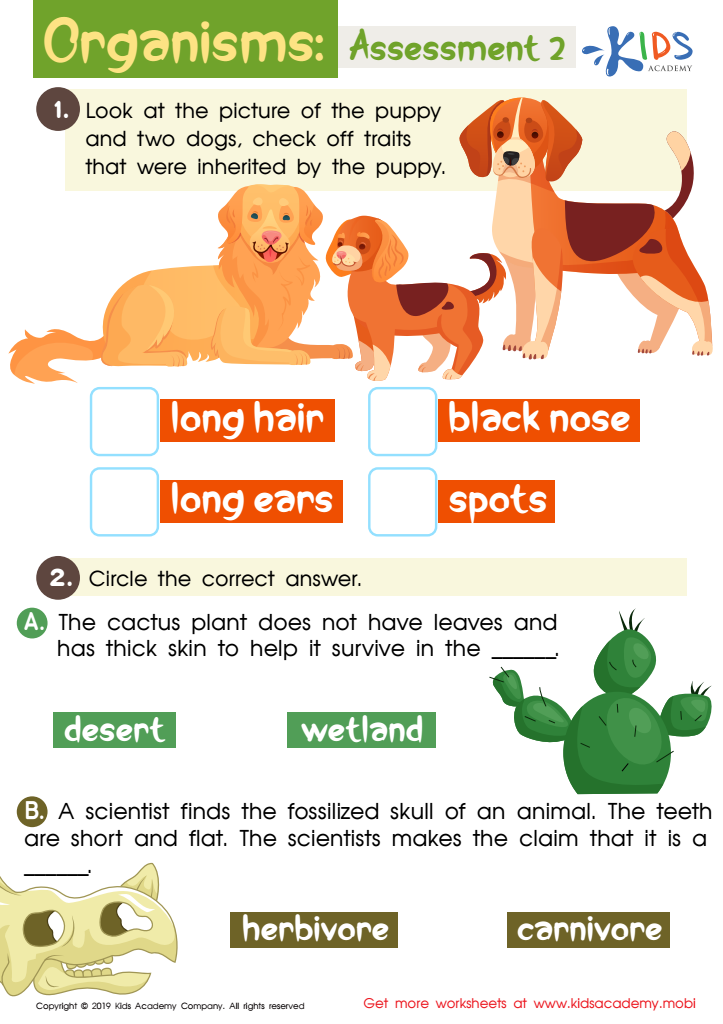

Organisms: Assessment 2 Worksheet
Understanding ecosystems is essential for students in Grade 3, as it lays the groundwork for their comprehension of the natural world. Parents and teachers should care about this fundamental aspect of science education because it cultivates critical thinking skills and an appreciation for biodiversity.
Learning about ecosystems helps children recognize the interconnectedness of living organisms and their environments. By studying how plants, animals, and microorganisms interact, students develop a sense of responsibility towards nature. This knowledge encourages environmentally conscious behaviors, reinforcing the importance of conservation and sustainability.
Furthermore, understanding ecosystems enhances students’ observational and analytical skills. Through hands-on activities and outdoor exploration, children learn to ask questions, categorize information, and draw conclusions, fostering their scientific inquiry skills.
Parents and teachers play a crucial role in nurturing curiosity about ecosystems, which can translate into increased engagement in science learning and improved academic performance. By prioritizing ecosystem education, they prepare students to tackle global challenges like climate change, conservation, and habitat loss.
In summary, emphasizing ecosystems in Grade 3 science equips children with essential knowledge and skills that promote environmental stewardship and empowers them to become informed citizens in a rapidly changing world.
 Assign to My Students
Assign to My Students



